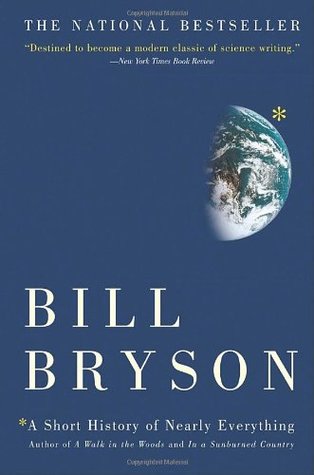Only logged in customers who have purchased this product may leave a review.
Grade 8
A Short History of Nearly Everything by Bill Bryson
$175.00
In Bryson’s biggest book, he confronts his greatest challenge: to understand—and, if possible, answer—the oldest, biggest questions we have posed about the universe and ourselves. Taking as territory everything from the Big Bang to the rise of civilization, Bryson seeks to understand how we got from there being nothing at all to there being us. To that end, he has attached himself to a host of the world’s most advanced (and often obsessed) archaeologists, anthropologists, and mathematicians, travelling to their offices, laboratories, and field camps. He has read (or tried to read) their books, pestered them with questions, apprenticed himself to their powerful minds. A Short History of Nearly Everything is the record of this quest, and it is a sometimes profound, sometimes funny, and always supremely clear and entertaining adventure in the realms of human knowledge, as only Bill Bryson can render it. Science has never been more involving or entertaining.
Class Details
Lessons: 5 Lessons
Term: Term 1
Genres: History Non-fiction
$35 per lessonClass Times
About Our Courses
At Beyond Books, we are passionate about helping every student succeed and achieve their full potential through learning.
During the classes, he learners will actively participate in the discussion to share their thinking and light a passion of reading and learning from books. Our small size group classes allow each learner to answer questions and give them the space to think critically and creatively.
- Before the class: The learners are expected to finish reading the whole book , or at least half of the book.
- During the class: Depends on the book, our teaching contents cover the following parts
- - Vocabulary words and activities
- -Elements of the novel: Plot, Conflict, Setting, and Themes, etc
- - Character analysis
- - Comprehension questions: The learners’ dicussion will focus on making connections, visualizing, inferring, determining importance, analyzing, summarizing, evaluating, predicting, and questioning,etc
- - Critical thinking questions: The learners will think deeply and discuss together to extend their understanding and thinking
- - Writing tasks’ idea discussion
- After the class: The learners are expected to do a writng task as their homework


Reviews
There are no reviews yet.